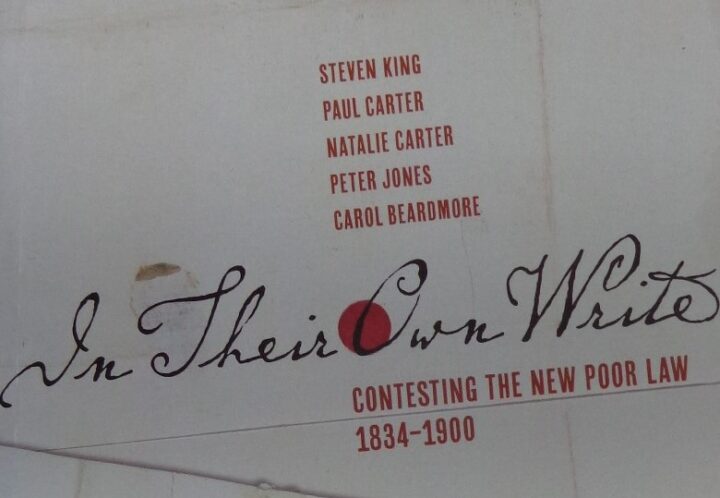
Book on Victorian poverty wins major prize

A major new book on nineteenth century poverty co-authored between staff at The National Archives and Nottingham Trent University has won the North American Victorian Studies Association’s (NAVSA) prize for best book in the field published in 2022.
In Their Own Write: Contesting the New Poor Law, 1834–1900, by Steven King, Paul Carter, Natalie Carter, Peter Jones and Carol Beardmore, focusses on letters from English and Welsh paupers, the wider poor and their advocates, that are held at The National Archives in record series MH 12: Poor Law Union Correspondence. For the first time the history of nineteenth century English and Welsh poverty has been produced based on the testimony of the poor themselves.
Dr Paul Carter, Principal Records Specialist, Collaborative Projects, The National Archives said:
‘We are thrilled that our book has been recognised in this way and are honoured that the North American Victorian Studies Association (NAVSA) has chosen our volume as best book in field. This underpins the importance of archival records research in surfacing voices not usually heard. In most cases, history records the views of the political and economically powerful; but in this case we have the concerns, fears and demands of the poor laid bare giving us an exceptionally clear and rich understanding of what life was like for the poor in Victorian times.’
Professor Steven King, Professor of Social and Economic History, Nottingham Trent University said:
‘The main theme of the book examines and explains how the Victorian poor (including those in workhouses), used letter writing to the central poor law authority in London to try and make their life and living conditions better. They complained of ill treatment, medical neglect, lack of food, punishment regimes etc. as well as making positive arguments for such things as paid employment through public works and rights for medical care. These instances of letter writing demonstrate an agency not often attached to the Victorian poor – but one we have demonstrated again and again throughout this book.’
In their citation, the judges for the prize stated that the book provides a “…history from below of the New Poor Law [that] ensures that the voices of the poor will necessarily be part of future studies of social welfare, government administration and information management, disability, gender politics, and Victorian periodicals and media”.
There are many thousands of letters, petitions, witness statements etc. by which the poor complained of their treatment when bound by necessity to ask for “poor relief”. Although the Victorian poor had a legal right to claim relief it was less explicit in the legislation that they have a right to relief. Therefore, relief itself was contested throughout the Victorian period. These records, and thus the voices of the poor themselves, were bound into the 16,741 (rather large) volumes of poor law correspondence now held by The National Archives. The vast majority of these letters, petitions and statements, have been previously overlooked and underused until the commencement of our Arts and Humanities Research Council (AHRC) funded project. The historic poor then were rarely silent about their condition – they have been shouting at us from the archive.
Tags: North American Victorian Studies Association, Nottingham Trent University, poor law